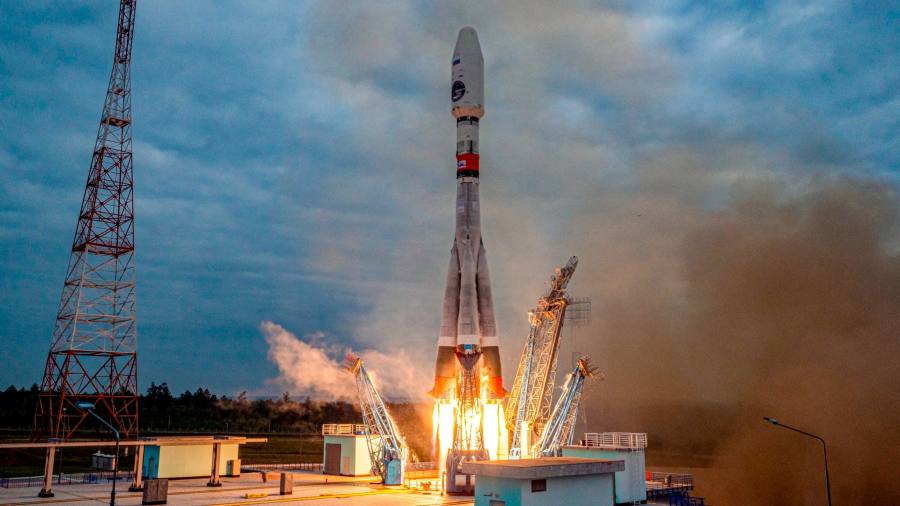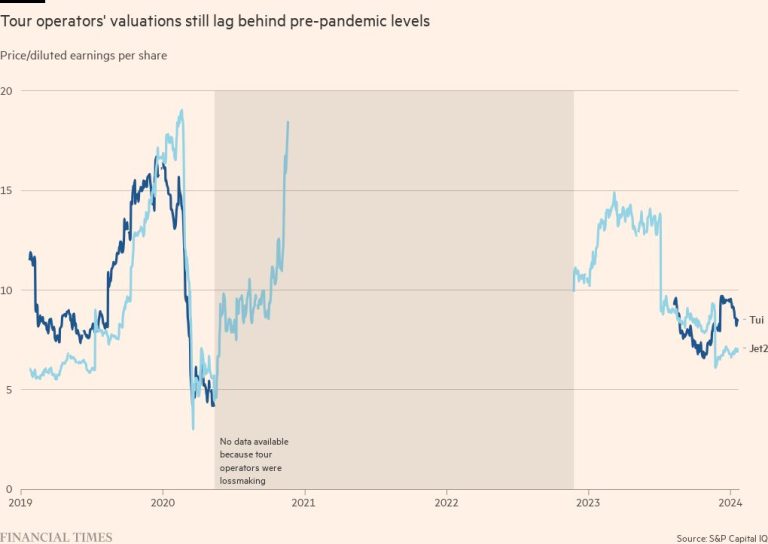Receive free space exploration updates
We’ll send you a myFT Daily Digest email rounding up the latest Space exploration news every morning.
Russia’s first Moon mission since 1976, when it was still part of the Soviet Union, has ended in failure after its unmanned spacecraft Luna-25 spun out of control and crashed into the Moon’s surface.
It had been due to land on the South Pole of the Moon on Monday.
The setback for Russia’s increasingly isolated and cash-strapped Roscosmos space agency underscores the decline of Moscow’s space program since its peak in the cold war when the Soviet Union was the first to send a person into space.
The Luna-25 was launched from Earth earlier this month, with Russia hoping to become the first country to land on the South Pole of the Moon. Once there, the lunar lander mission was supposed to spend a year studying the Moon’s surface and exosphere, and conducting other research.
But on Saturday afternoon, as the craft was transitioning from a circular orbit about 100km above the Moon’s surface into a pre-landing orbit, communication was lost.
The impulse that was meant to trigger the transition pushed it off course, sending it on the wrong trajectory of orbit, the space agency said.
“According to the results of preliminary analysis, due to the deviation of the actual parameters of the impulse from the calculated ones, the Luna-25 spacecraft moved to a non-calculated orbit,” Roscosmos said in a statement. It then “ceased to exist as a result of collision with the surface of the moon.”
“Measures implemented on August 19 and 20 to search for the spacecraft and communicate with it did not yield any results,” the space agency said, adding that an interdepartmental commission had been formed to investigate the incident.
The Luna-25 was launched on August 10 from the Vostochny Cosmodrome in Russia’s Far East and marked the country’s first Moon mission since 1976, when the Soviet Union launched the Luna-24. That robot lander successfully returned to Earth carrying lunar soil samples for scientists to study.
In the Luna-25 mission, Russia was racing to beat India, whose Chandrayaan-3 spacecraft is approaching the Moon’s South Pole region and is scheduled to make its landing on Wednesday.
The Luna-25 crash raises doubts about the future of Russia’s space program, particularly at a time when the country is engaged in a draining and costly war in Ukraine, with sanctions and international opprobrium over its invasion cutting off access to western technology and research.
Roscosmos has been teaming up with the Russian army to sponsor a battalion of volunteer soldiers to fight in Ukraine, the Financial Times has reported.
“Any failure in space, it a priori affects the future plans of either a particular country or a particular programme,” Alexander Zheleznyakov, an expert in the rocket and space industry and a historian of cosmonautics, was cited by Russian business newspaper RBC as saying.
“In our case, most likely we will have to change the approach to the creation of new landers, because for the 47 years that have passed since the launch of the previous lander, much has changed,” Zheleznyakov said. “Science has moved on and technology has moved on, and unfortunately, over the years we have somewhat lost our competence in interplanetary missions and in landing on other planets.”
“We will have to temper our ambitions somewhat and realize that we will have to learn everything again,” he said.
Another Russian scientist, 90-year-old Mikhail Marov, one of the leading figures in the Soviet space program, told RBC he was hospitalized from the shock of hearing about the Luna-25 crash, which he called his “life’s work”.
“It is sad that it was not possible to land the apparatus,” he told the magazine. “For me, perhaps, it was the last hope to see the revival of our lunar programme.”












+ There are no comments
Add yours